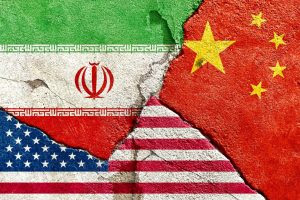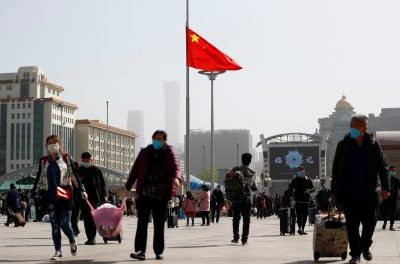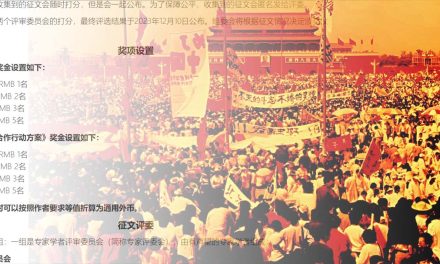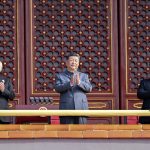Amid the Israeli and U.S. military strikes on Iran, China’s attempt to seize the moral high ground converges with its multilayered strategic calculations.
By Jianli Yang
Since Israel began its aerial strikes on Iranian territory, China’s Ministry of Foreign Affairs and top leaders have repeatedly voiced strong condemnation of Israel’s actions, accusing Tel Aviv of escalating tensions in the Middle East. Following the dramatic U.S. military operation on June 21 – codenamed “Operation Midnight Hammer” – that targeted three Iranian nuclear facilities under International Atomic Energy Agency (IAEA) oversight, China’s rhetoric intensified. In a statement, China’s Foreign Ministry “strongly condemn[ed] the U.S. attacks on Iran,” adding, “The actions of the U.S. seriously violate the purposes and principles of the UN Charter and international law, and have exacerbated tensions in the Middle East.”
China portrays itself as a responsible global power calling for de-escalation, protection of state sovereignty, and adherence to international law and United Nations principles. However, this façade of moral uprightness masks China’s deep and layered strategic calculations. While China champions peace and stability in its official statements, its short-term and long-term interests in the region tell a more complex story – one of calculated ambivalence and strategic flexibility.
In the short term, China unequivocally prefers stability in the Middle East. Any escalation between the United States, Israel, and Iran threatens to destabilize a region critical to Beijing’s economic and energy strategies. The most immediate risk lies in China’s massive dependence on Middle Eastern energy – including from Iran. According to the U.S. Energy Information Administration (EIA), China is the largest buyer of Iranian oil, accounting for approximately 80-90 percent of Iran’s total oil exports.
In March 2025, China imported a record 8.07 million metric tons of crude oil from Iran, equivalent to 1.91 million barrels per day. This volume marked a historic peak, revealing the depth of their energy ties. Despite U.S. sanctions, China has maintained and even expanded its crude imports from both Russia and Iran by employing sanction-evasion tactics such as ship-to-ship transfers, false labeling, and using third countries like Malaysia for transshipment.
On average, China imports about 11.1 million barrels of oil per day. A military escalation resulting in a closure or severe disruption of the Strait of Hormuz – and Iran is moving toward just such a closure – would be a catastrophic blow to China’s energy security. Not only is Iranian oil at stake, but shipments from Saudi Arabia – another major Chinese oil supplier – also pass through this strategic chokepoint. With a national petroleum reserve estimated to cover roughly 90 days of imports, any prolonged disruption would leave China scrambling for alternatives.
https://thediplomat.com/2025/06/war-in-iran-chinas-short-and-long-term-strategic-calculations/
This article first appeared in The Diplomat on June 24, 2025

























